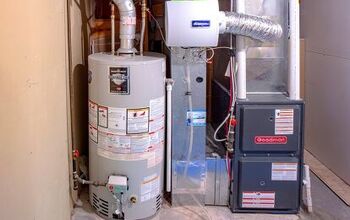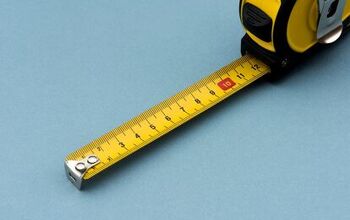What Are The Pros And Cons Of Hydro Air Heating?

In the winter months, your heating system is one of your home’s main energy users. Since your home’s heating system has such a huge impact on you and your family’s comfort, it’s important that you consider all of your options. While you may already be familiar with forced air or hydronic heating systems, hydro-air heating is a less common choice. However, they are slowly gaining popularity largely because of their flexibility and reliability.
The main advantages to hydro-air heating are increased comfort levels, flexibility, reliability, efficiency, and ease of zoning. Meanwhile, the downsides to choosing this type of heating system include the cost, and the fact if you don’t already have forced heat in your home, it must be installed in either your attic or basement in order for hydro-air heating to work.
With that said, let’s break down hydro-air heating in detail to obtain a better understanding of this relatively uncommon, but highly beneficial, system. We’ll define exactly what hydro-air heating is, how it works, and take a look at the associated pros and cons to help you make an informed decision about whether or not this type of heating system is right for you and your home.
Do You Need a Heating and Cooling Contractor?
Get free, zero-commitment quotes from pro contractors near you.

Defining Your Home’s Heating System
Generally speaking, your home will have a furnace or boiler as a heating appliance. Furnaces heat air, whereas, boilers heat water. You’ll also have one of several different types of heat pumps, based on whether your appliance sources heat from the ground, a water reserve, or the air. Fuels vary as well, as furnaces and boilers can be fueled by oil, gas, propane, and even electricity.
Whatever heating appliance that you choose, it must pair well with your method of heat distribution. The heating system in your home can be loosely defined as the sum of your heating appliance and the method of heat distribution. There are a number of possible combinations. One common combination is a gas-fired furnace, paired with forced-air distribution.
However, this system usually delivers relatively dry heat and can function noisily and unevenly. Another, less common, heating system that has been gaining popularity in recent years is known as hydro-air heating.
What is Hydro Air Heating and How Does it Work?
A hydro-air heating system is a combination of hydronic (hot water) and forced air (ducted). Instead of using a flame in the air handler, as a conventional furnace does, the air is heated with hot water. This type of system involves a hot water boiler, that is either gas, propane, or oil-fired, for generating heat.
Water is heated in the boiler and then pumped through small diameter tubing to an air handler unit. This unit features a hot water coil, an air conditioning coil, and a blower unit – roughly resembling an air conditioning air handler. As the hot water heats the coils, the blower distributes air over the heated coils.
This air is then passed throughout the home via your duct system. If an air conditioning unit is attached, this same ductwork is also used for distributing cool air. If you want air conditioning as well, an air conditioning cooling coil can be installed to work in combination with an outdoor condenser unit.
In many cases, the boiler in a hydro-air system is used for heating domestic-use water, such as in your washing machine or shower, which eliminates the need for a separate water heater. Hydro air is a wonderful choice for use in combination with other systems.
It’s also possible to install a hydro-air heating system that uses a tankless water heater instead of a boiler. However, these are less streamlined in design and require a minimum water flow in order to kick on and also take time to heat up the water. As such, you’ll need an extra storage tank for supplying hot water when the tankless system does not.
Advantages of Hydro-Air Heating
Hydro-heating offers the flexibility to heat every inch of your home how you want with a single reliable, energy-efficient, and space-saving system.
Zoning and Flexibility
With hydro-air heating systems, you are given the option of mixing and matching your choice in heat emitters. For example, you may have hydronic baseboard heaters or radiators in your living room, hydronic radiant flooring in your bathrooms and kitchen, and forced-air heating in the rest of your home.
You can even consider adding hydronic heated towel bars, and other unique luxuries. Or, you may choose to stick with a hydro-air heating system that sticks to forced air distribution – the options are endless.
Zoning is also simplified with hydro-air heating. You can have a separate air-handler for each zone, and if you prefer, different emitters in different areas of your home to customize the level of comfort and warmth in each room. Not to mention, if your boiler is also used for heating your household water, you’ll free up space that would otherwise be taken up by a hot water heater.
Reliability and Efficiency
When compared to traditional hot water systems or straight hot air systems, hydro-air heating is more efficient. It heats rooms more evenly since the air is heated roughly 120 to 140 degrees Fahrenheit. Because of the regulated coil temperatures, the air is not dried out as much as it is with forced air systems.
If your home currently features an older forced-air furnace and water heater, upgrading to hydro-air heating will allow you to replace both appliances with one high-efficiency system. This can make your home eligible for rebates related to energy efficiency, in addition to reducing your energy bills significantly.
Hydro-air heating systems are an excellent, cost-effective alternative to a full hydronic (wet) system with separate air conditioning ductwork. You’ll enjoy unmatched versatility at a reasonable price, with the added ability for central air conditioning in one unit. Find out why your water heater is overheating.
Disadvantages of Hydro-Air Heating
Fortunately, hydro-air heating comes with very few disadvantages. Though, the cons are worth noting in order to make a proper analysis and informed decision about whether or not this type of home heating system is the right choice.
The main disadvantage with installing hydro-air heating over a more conventional system is that you do need to have forced hot air currently installed in your home. If not, you’ll have to be pay to have it installed in either your attic or basement in order for the system to function properly. Additional drawbacks include:
- If using a high-efficiency boiler, hydro-air does not allow the boiler to operate at optimum efficiency.
- Should the boiler fail and need repair, your entire home will be without heat for the time being.
- If the air handlers are located in an unconditioned area, boiler treatment using glycol is needed– which can be harmful to the entire system.
Additional Considerations
In order to run a hydro-air heating system in your home, you need to have a gas line that is large enough to supply the boiler, a space to vent the boiler outdoors, and an electrical supply that powers the boiler’s controls and ignition. If you have a condensing boiler, you’ll also need a floor drain or a condensate pump.
With that said, opting for a hydro-air system is most cost-effective in homes that already have some type of boiler installed. If not, installing a new forced air system will cost you less than it would to install a new boiler and a hydro-air handler. Though, if you’re planning new construction, a hydro-air heating system in conjunction with a conventional air conditioning system will likely cost less than radiant flooring and a ductless air conditioning system.
As such, hydro-air heating systems are ideal for small to mid-sized homes that have efficient weatherization qualities, such as proper insulation and tight air-sealing. In larger, draftier homes, these systems will struggle to provide sufficient warmth. Although hydro-air systems are still largely uncommon, they are a practical choice for energy-efficient homes and those who want a heating system that is both dependable and extremely flexible.
Do You Need a Heating and Cooling Contractor?
Get free, zero-commitment quotes from pro contractors near you.

Related Questions
Are hydronic heating systems affordable to run?
When compared to other types of heaters, hydronic heating systems are less expensive to operate. In fact, they are about 35 percent more energy-efficient than a traditional ducted system.
How much does it cost to install hydro-air heating?
Since hydro-air heating is technically a form of hydronic heating, you can expect to spend between about $3,500 and $4,200 to have the system installed. This includes the heating unit, supplies, and installation.
How long does hydronic heating take to warm up?
In general, hydronic heating takes about 15 minutes to heat up a room. However, this will vary based on the size of the space, the material of your floors and walls, and the specific type of hydronic heating system that you have in your home.
Does hydro-air heating dry air like furnaces?
If you live in a cold climate, you know that winter is synonymous with dry air. While conventional heating systems typically remove humidity from the air and lead to headaches, dry skin, sore throats, and more, hydro-air heating does not. This system is an excellent alternative for those who don’t want to deal with all the negative implications of dry air caused by furnaces.
Related Articles

Jessica considers herself a home improvement and design enthusiast. She grew up surrounded by constant home improvement projects and owes most of what she knows to helping her dad renovate her childhood home. Being a Los Angeles resident, Jessica spends a lot of her time looking for her next DIY project and sharing her love for home design.
More by Jessica Stone



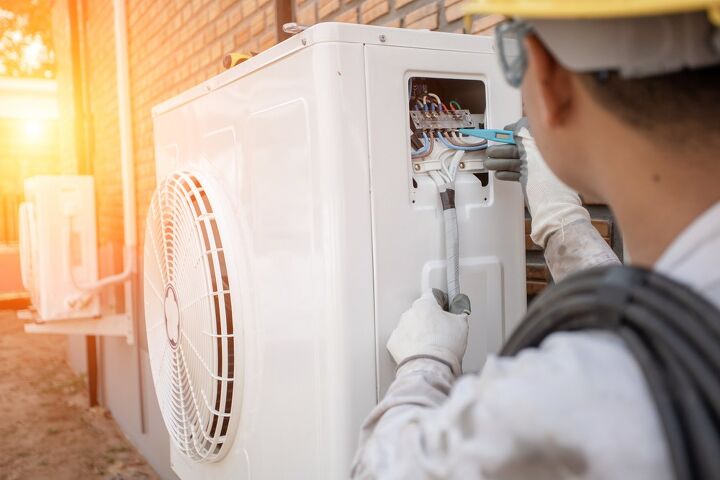







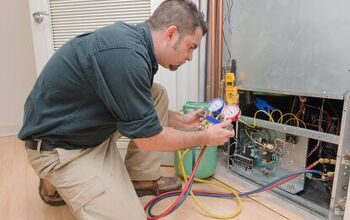
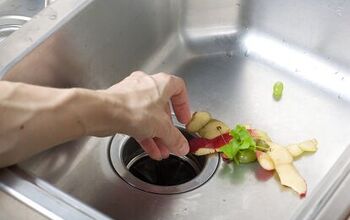

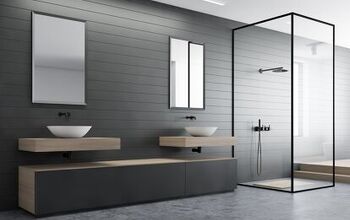
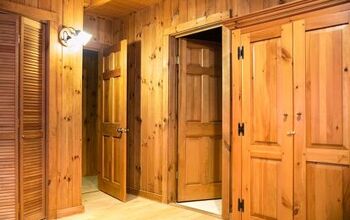
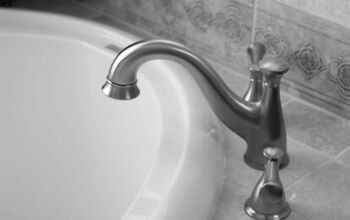
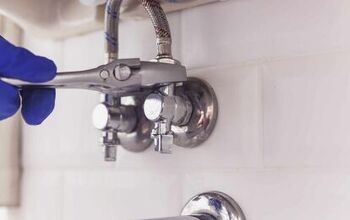
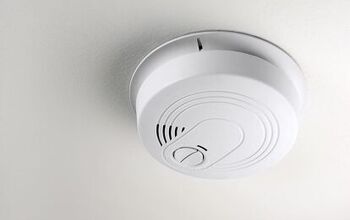
![12 Washing Machine Brands to Avoid [with Recall Data]](https://cdn-fastly.upgradedhome.com/media/2023/07/31/9075781/12-washing-machine-brands-to-avoid-with-recall-data.jpg?size=350x220)


